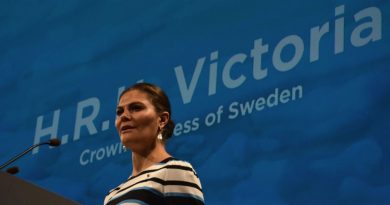Indigenous leaders hope to renew relationship with Crown after meeting King Charles
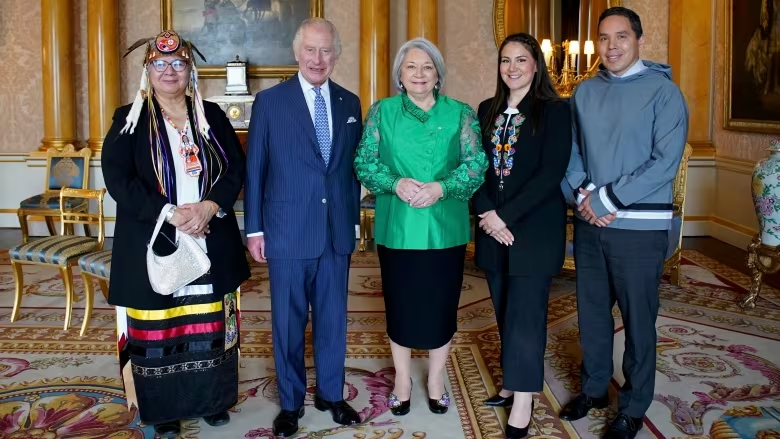
Meeting was arranged by Canada’s first Indigenous governor general ahead of Charles III’s coronation
National Indigenous leaders say their historic meeting with King Charles on Thursday, two days before his coronation, marks the beginning of a new chapter in the relationship between the Crown and Indigenous Peoples.
This was the first time a British monarch sat down with First Nations, Inuit and Métis representatives together. It also was the only audience the King granted to Canadians during the run-up to his coronation, which takes place on Saturday.
The meeting at Buckingham Palace was arranged by Gov. Gen. Mary Simon, the first Indigenous person to serve as the King’s representative in Canada. She also attended the meeting.
In an interview with CBC’s Renee Filippone at Canada House afterwards, the leaders of the Assembly of First Nations, Métis National Council and Inuit Tapiriit Kanatami called the discussion “positive” and “productive.” They were scheduled to speak for 45 minutes but the conversation lasted almost an hour.
“This is a very significant day and we hope that it leads to further formal work, but also a further positive relationship between the King and representatives of Indigenous Peoples in Canada,” Inuit Tapiriit Kanatami (ITK) President Natan Obed said.
All three leaders were given the space to talk individually about who they are as First Nations, Inuit and Métis people, share their priorities, hear the King’s views and chart a path forward, said Métis National Council President Cassidy Caron.
“When speaking with the King today, I mentioned something from one of my elders, who said that relationships are built over 100 cups of tea,” Caron said.
“Today, we had our first cup of tea, to build that relationship, to identify our common and shared priorities moving forward, to find ways of working together that will create real, tangible change in our communities.”
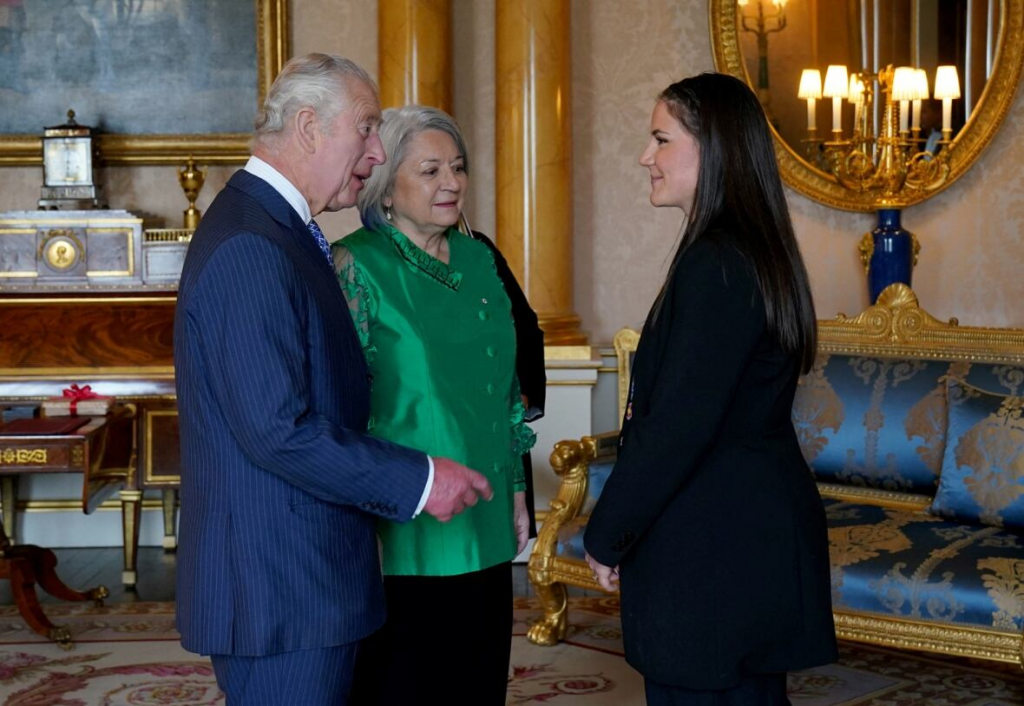
Assembly of First Nations (AFN) National Chief RoseAnne Archibald said she opened the meeting with a prayer written by one of her special advisers. She said the prayer was about the seven generations to come and was meant to focus the meeting on making positive changes for the future.
She said the leaders invited Charles III to visit their communities on his next trip to Canada.
“We really have to come full circle with the Crown, to come back to that place of deep respect and gratitude,” Archibald said.
“This is the beginning of that movement and, yeah, it’s going to take some time.”
Archibald said she left the palace feeling optimistic about the prospect of the King soon offering an apology for colonization and the Anglican Church’s role in residential schools.
“I believe that we will one day – maybe not in the next year or maybe not in the next five years – but we will get an apology in the same way that we got an apology from the Pope,” Archibald said.
The Anglican church ran more than three dozen residential school institutions in Canada. They were created to separate Indigenous children from their families and indoctrinate them into the culture of the dominant Euro-Christian society, according to the Truth and Reconciliation Commission.
Although the Anglican Church has apologized to residential school survivors, the monarch – as the supreme governor of the Church of England, which is part of the Anglican Communion – has not.
Caron said she raised with the King the issue of recognition for Métis residential school survivors, who were not part of the $1.9 billion Indian Residential School Settlement Agreement and were not given an official apology from the prime minister.
“Hopefully, we can use our moral influence together to continue raising awareness about that issue and work together on finding solutions,” Caron said.
MMIWG, returning Indigenous artifacts also discussed
Obed said he wants to work with the King and the British government on returning Indigenous cultural belongings to their home communities and ensuring they are treated with respect.
“That’s something that we also want to look forward to working progressively with, not only the King, but the U.K. government on either repatriation or proper documentation of items that are held,” Obed said.
While the meeting participants said the King made no commitments, they said he discussed his interests in climate change, Indigenous knowledge, housing and reconciliation.
Archibald said she spoke to Charles III about the issue of missing and murdered Indigenous women, girls and two-spirit people.
She said she brings up the subject in every international meeting she gets, and she thought it was particularly important to discuss it with King Charles, who is the RCMP’s new commissioner-in-chief.
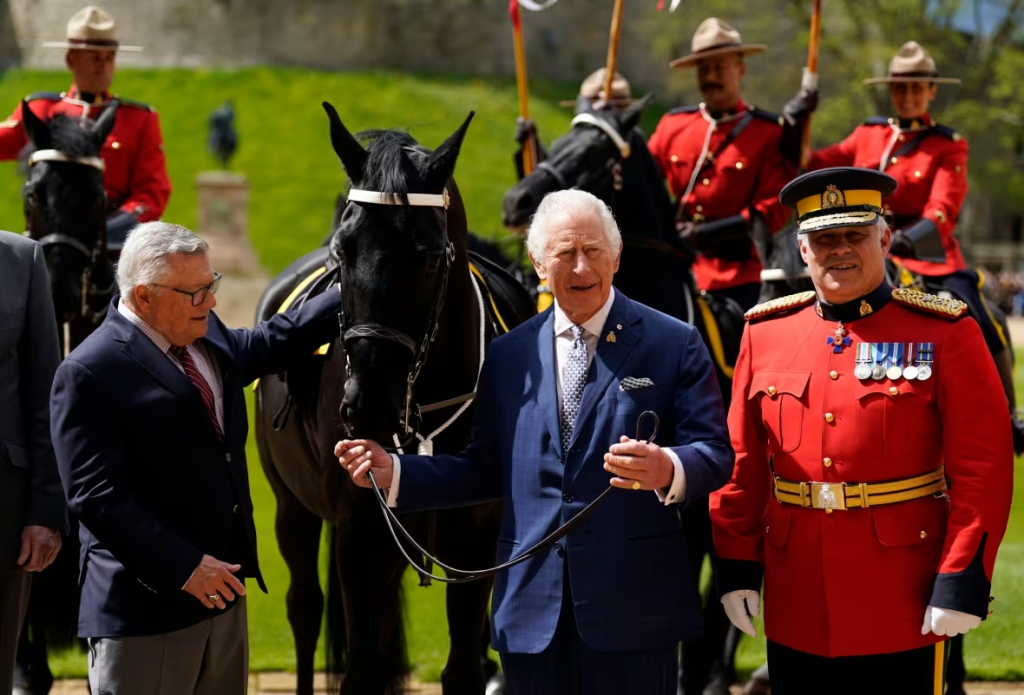
Archibald said she asked Charles III to support and acknowledge the Calls to Justice from the National Inquiry into Missing and Murdered Indigenous Women and Girls.
“Genocide is an ongoing activity,” Archibald said.
Niigaan Sinclair, a professor of Native studies at the University of Manitoba, told CBC News it’s important for Indigenous leaders to meet with the King because their nations and the Crown are equal partners in the treaties signed before Confederation.
Many Indigenous leaders asked Queen Elizabeth II to intervene in violations of those treaties, but nothing was done.
“Unfortunately, the Crown has not listened in the past so I don’t have a lot of optimism that this Crown or King will listen,” said Sinclair, a columnist for the Winnipeg Free Press.
“But at the same time, this King has shown more interest than his mother.”
Sinclair said the King could respond to Obed’s call for the return of stolen artifacts.
“That’s where real action can take place,” Sinclair said.
Responding to the TRC Calls to Action
Another major step Charles III could take toward reconciliation would be to renounce the Doctrine of Discovery, said Sinclair. He said this would force the federal government to deal with outstanding Indigenous land claims.
The centuries-old papal decrees – issued in 1455 and 1493 – were used to justify the seizure of Indigenous land in the Americas by colonial powers.
The doctrine prompted King George III to issue the Royal Proclamation of 1763, which declared all land in North America to be Crown land.
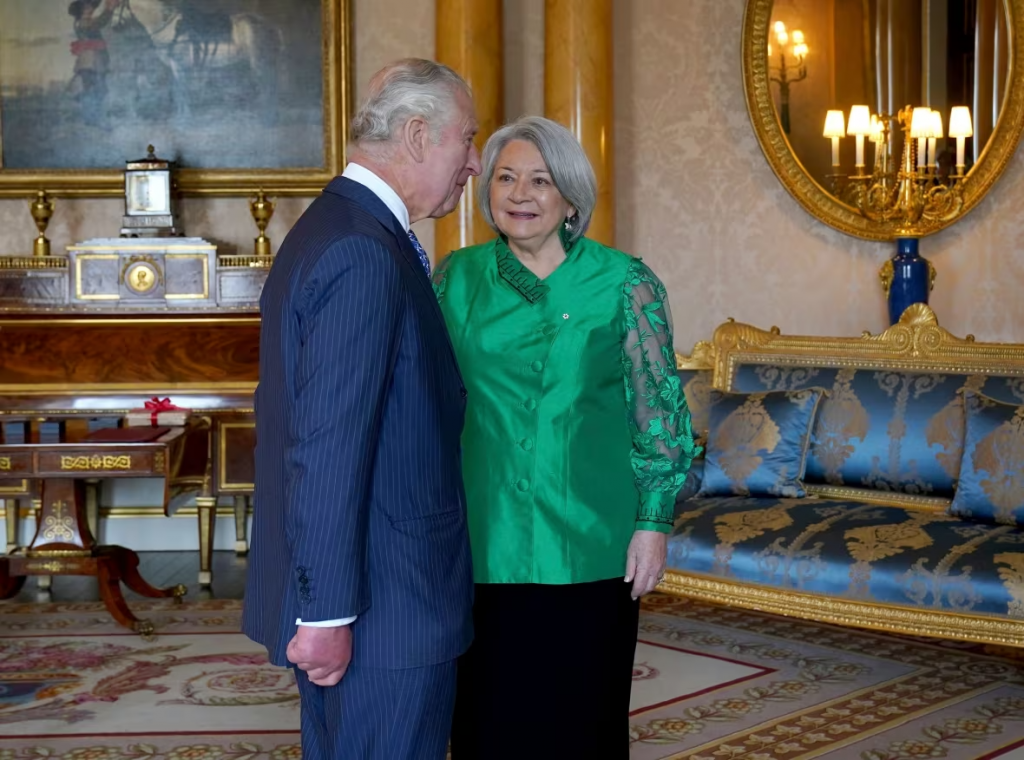
Pope Francis formally repudiated the Doctrine of Discovery last March – something Sinclair hopes King Charles will do as well.
“That would be a big step,” Sinclair said.
The Truth and Reconciliation Commission, which Sinclair’s dad Murray Sinclair chaired, called on the Government of Canada to jointly develop with Indigenous Peoples a Royal Proclamation of Reconciliation to be issued by the Crown.
It would reaffirm the nation-to-nation relationship between Indigenous Peoples and the Crown, repudiate concepts used to justify European sovereignty over Indigenous lands and peoples, and ensure Indigenous laws are recognized in the negotiation and implementation processes involving treaties.
Related stories from around the North:
Canada: Northerner remembers Queen’s kindness on Arctic tour in Canada, Eye on the Arctic



